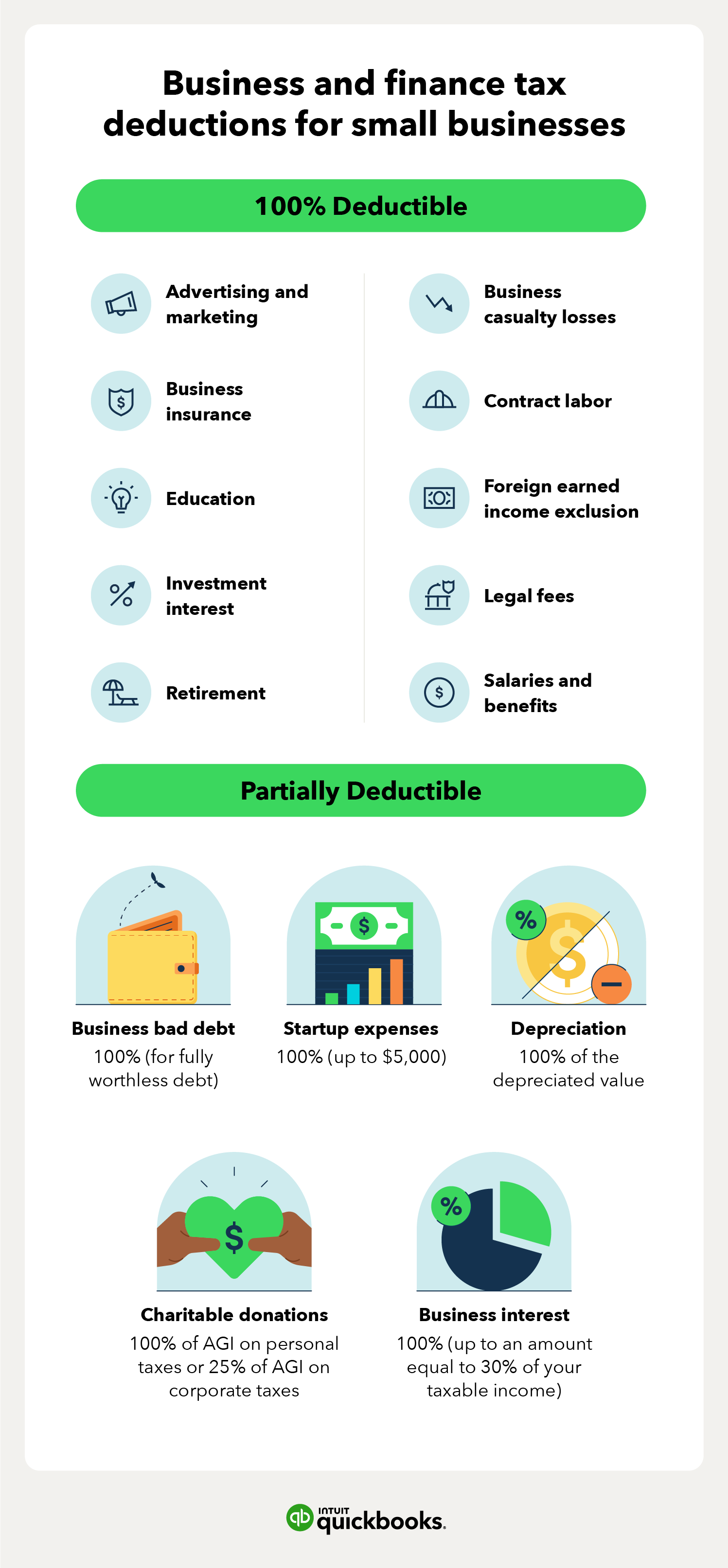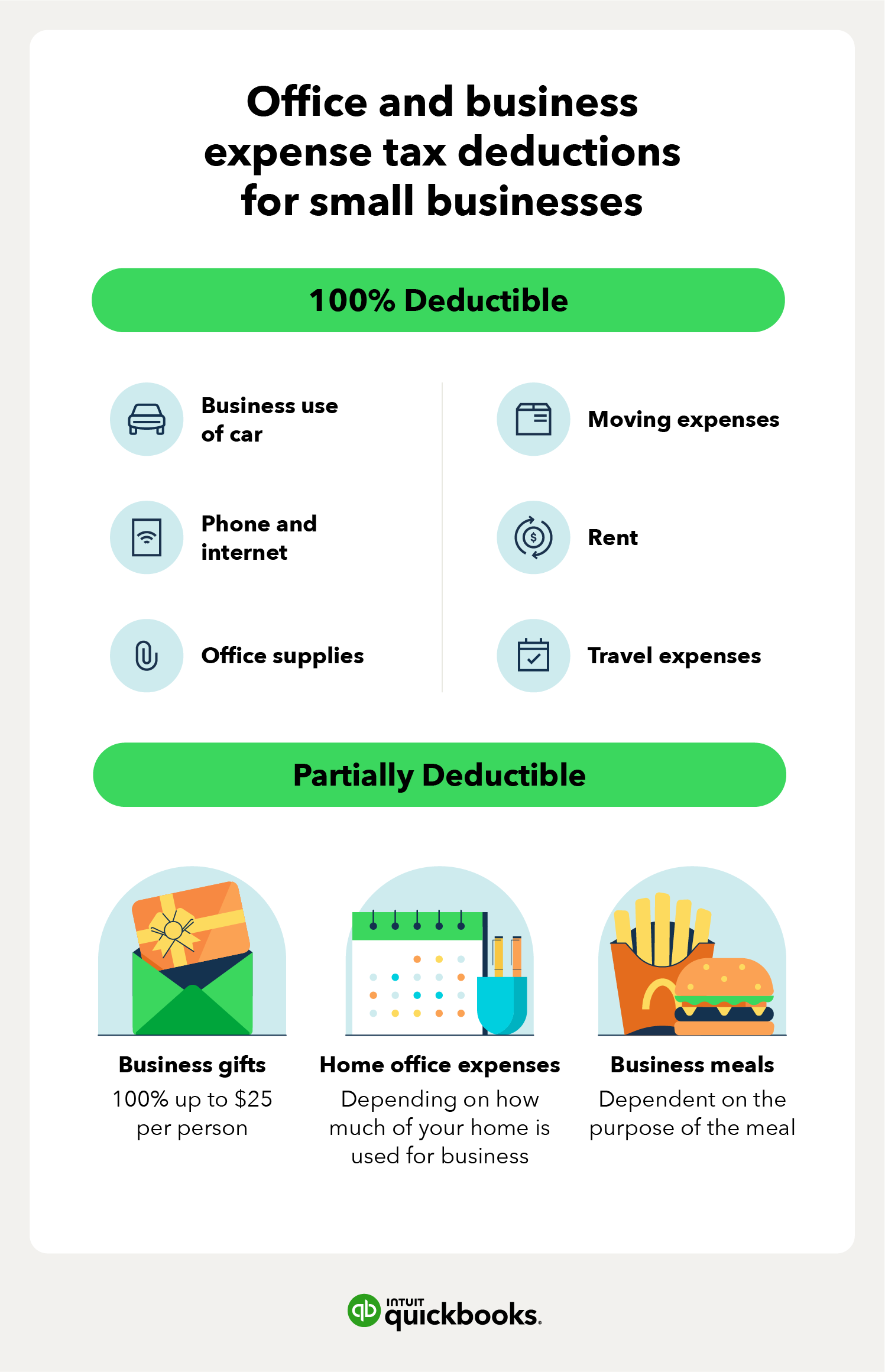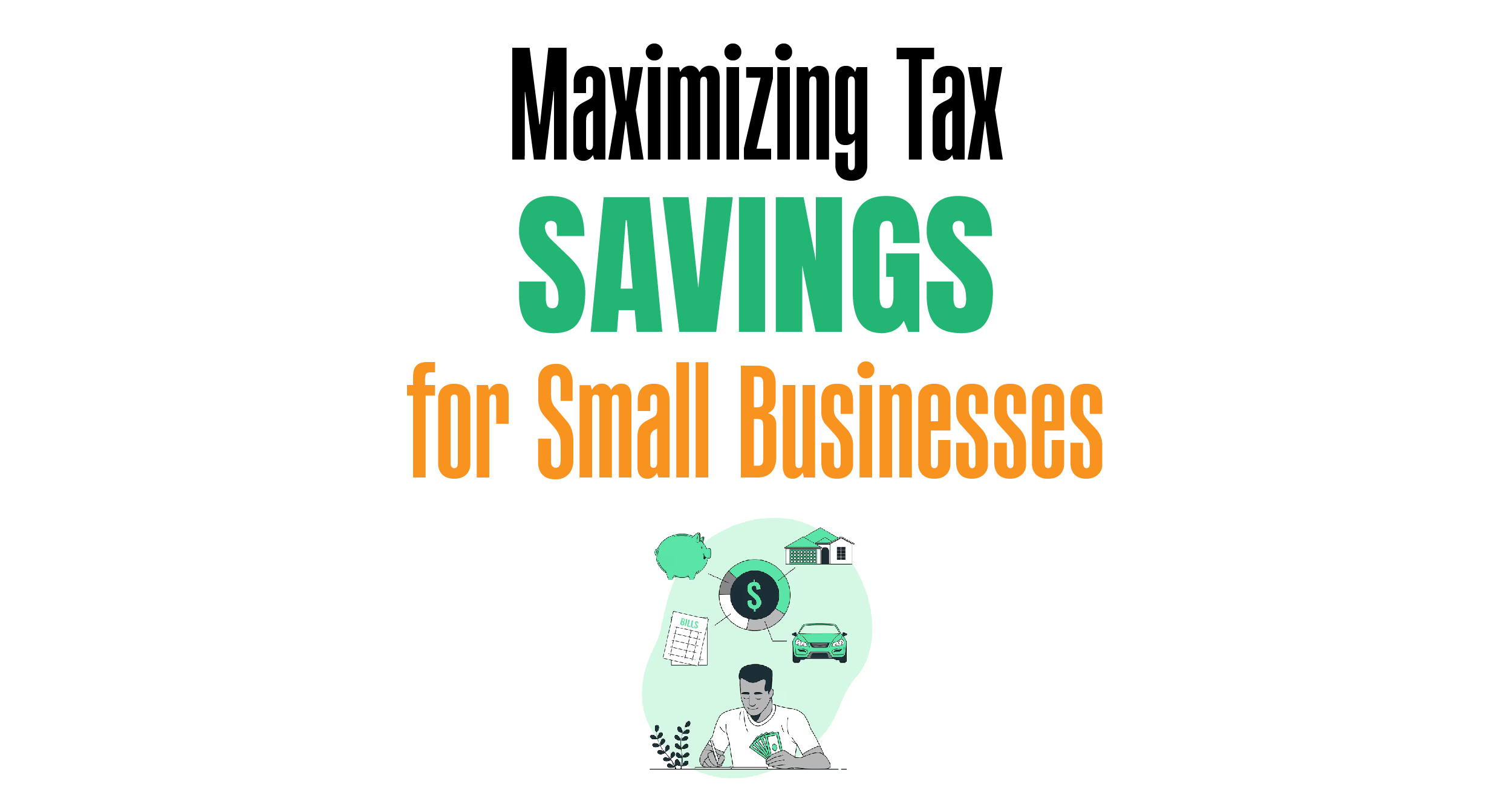Small businesses can deduct various expenses to reduce their taxable income. Common deductions include office supplies, rent, and employee wages.
Tax deductions play a critical role in managing a small business’s finances. They help reduce the overall tax burden, allowing business owners to reinvest savings into their operations. Deductible expenses can range from office supplies to employee salaries and even certain travel costs.
Properly claiming these deductions requires careful record-keeping and understanding of IRS regulations. By staying informed about eligible deductions, small businesses can optimize their tax returns and improve their financial health. This guide will explore common tax deductions and provide tips for maximizing your tax savings.
Introduction To Tax Deductions
Tax deductions help small businesses save money. They lower the amount of tax owed. This means more money can stay in the business. It can be used for growth and improvements. Understanding tax deductions is very important. Missing out can cost a business a lot of money.
Some think only large businesses get tax deductions. This is not true. Small businesses can also benefit. Another myth is that deductions are hard to claim. With proper records, it is not difficult. Many believe all expenses are deductible. Only some expenses qualify. Always check the rules to be sure.

Credit: quickbooks.intuit.com
Home Office Deduction
Small business owners can claim a home office deduction. The office space must be used exclusively and regularly for business. The space must also be the principal place of business. It can also be a place where you meet clients. Even a separate structure like a garage can qualify.
There are two methods to calculate the home office deduction. The simplified method allows a deduction of $5 per square foot. This method caps the deduction at 300 square feet. The regular method involves calculating actual expenses. These can include mortgage interest, insurance, and utilities. Divide these costs based on the percentage of your home used for business.
Vehicle Expenses
Small businesses can benefit from tax deductions on vehicle expenses. Track mileage, fuel costs, and maintenance to maximize savings.
Standard Mileage Vs. Actual Expenses
Standard mileage rate is easy to use. You multiply the miles driven by a fixed rate. The rate changes every year. Actual expenses include gas, oil, repairs, insurance, and depreciation. You add up all these costs for the year. Choose the method that gives the bigger deduction.
Record-keeping Tips
Keep a logbook for your vehicle. Record the miles driven for business. Note the date, distance, and purpose of each trip. Save all receipts related to your car. Use apps to track mileage and expenses. Good records help you claim the maximum deduction.

Credit: quickbooks.intuit.com
Business Meals And Entertainment
Small businesses can deduct 50% of meal costs. This is only for business-related meals. Meals with clients or employees are eligible. The meal must be directly related to business. Entertainment expenses are not deductible. Only the meal part of an entertainment event is deductible.
Keep detailed records of meals. Save receipts and invoices. Note the date, location, and purpose of the meal. Include the names of people present. Proper records help with tax audits.
Employee Benefits
Small businesses can save money with health insurance tax deductions. These deductions lower taxable income. Businesses providing health insurance may qualify. Offering health benefits can attract and retain employees. Deductions apply to both individual and family plans. Premiums paid are tax-deductible. This can result in significant savings. Providing health insurance shows you care for employees’ well-being. It also improves workplace satisfaction.
Contributing to employee retirement plans offers tax benefits. These contributions are tax-deductible. This means lower taxable income. Employers can match employee contributions. Matching contributions also qualify for deductions. 401(k) plans are a popular choice. SEP IRAs are another good option. Providing retirement plans helps secure employees’ future. It also makes your business more attractive.

Credit: triplogmileage.com
Professional Services
Small businesses can deduct legal fees from taxes. These fees must be for business purposes. Accounting fees are also deductible. This includes costs for preparing tax returns. Legal and accounting fees must be ordinary and necessary. Keep all receipts and invoices for proof.
Paying for consulting services can help your business. These costs are tax-deductible. Consultants may help with marketing or management. The fees must be for business-related advice. Save all documentation to support your claims. This can lower your taxable income.
Office Supplies And Equipment
Small businesses can benefit from tax deductions on office supplies and equipment, reducing overall operational costs. Proper documentation ensures eligibility for these valuable tax breaks.
Deductible Items
Small businesses can deduct expenses for office supplies. This includes paper, ink, and pens. Equipment like computers and printers can also be deducted. Don’t forget software costs, as they are deductible too.
Depreciation Rules
Some items lose value over time. This is called depreciation. You can deduct the depreciation of big items. These include furniture and machines. The IRS has rules for this. You must follow them.

Travel Expenses
Business travel expenses can be deducted. Personal travel expenses cannot be deducted. Always keep records of travel purpose. Only business-related travel is eligible for deductions.
Save all receipts and invoices. Keep a log of mileage and dates. Use a travel diary for detailed records. Accurate documentation is essential for tax deductions.
Education And Training
Small businesses can deduct costs for work-related courses. These courses must help improve skills for the business. The course must relate to your business field. This helps to keep the business competitive.
Costs for seminars and workshops are deductible. These events must be tied to your business. This includes conferences and online training. Professional development keeps your team up-to-date.
Frequently Asked Questions
What Can I Write-off On Small Business Taxes?
You can write-off expenses like office supplies, rent, utilities, travel, advertising, employee wages, and business insurance.
What Is The 20% Tax Deduction For Small Businesses?
The 20% tax deduction for small businesses, known as the Qualified Business Income (QBI) deduction, allows eligible businesses to deduct up to 20% of their qualified business income. This deduction is part of the Tax Cuts and Jobs Act and aims to reduce taxable income for small business owners.
What Deduction Can I Claim Without Receipts?
You can claim a standard deduction without receipts. For other deductions, such as home office expenses, you need documentation.
How Much Can An Llc Write-off?
An LLC can write off business expenses like rent, salaries, utilities, and supplies. Limits depend on IRS regulations.
Conclusion
Maximizing tax deductions can significantly boost small business profitability. Understanding eligible expenses is crucial. Regularly consult with a tax professional to stay compliant. Implement these strategies to reduce your tax burden. Empower your small business with smart financial decisions. Stay informed and proactive to ensure long-term success.

